No doubt you’ve all seen a classic advance fee scam. A stranger emails you asking for assistance in transferring a large amount of wealth that they say they own but can’t access, offering you a cut of it in return. Most of the time, these scams are sent en masse and not targeted to the recipient.
However, a bunch of UVic employees recently received a more targeted variant of this scam where the writer poses as someone wanting to come to UVic:
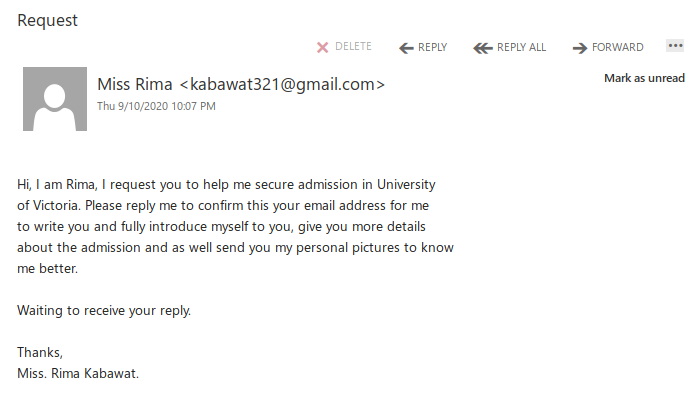
Those who reply will receive a lengthy letter back. For brevity’s sake I won’t post the whole thing, but here’s the part that makes it clear that this is just another advance fee scam. Note: you can right-click on the image and choose to open it in a new tab or window to view it at full size if the font is too small for your liking.


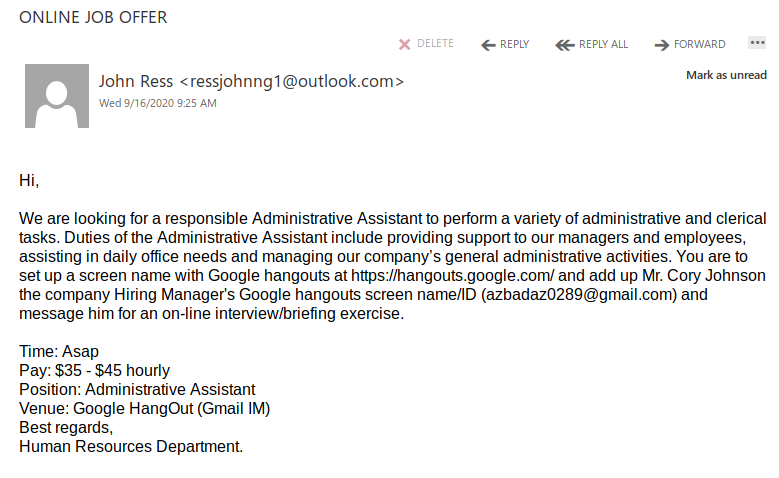
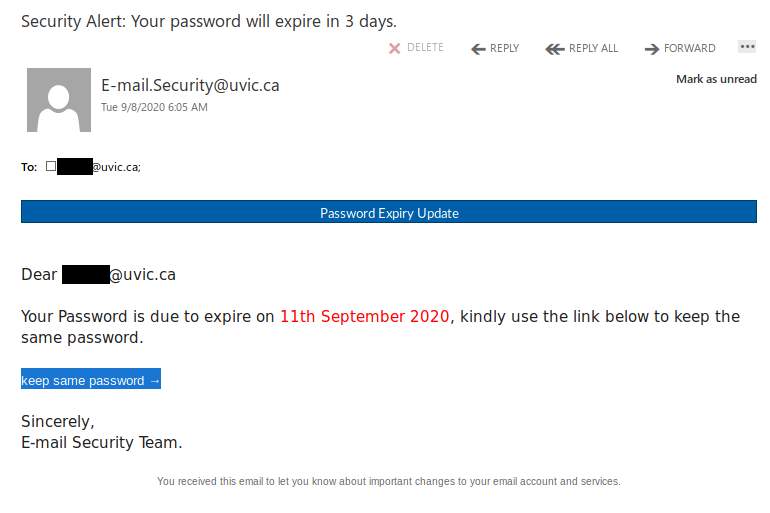


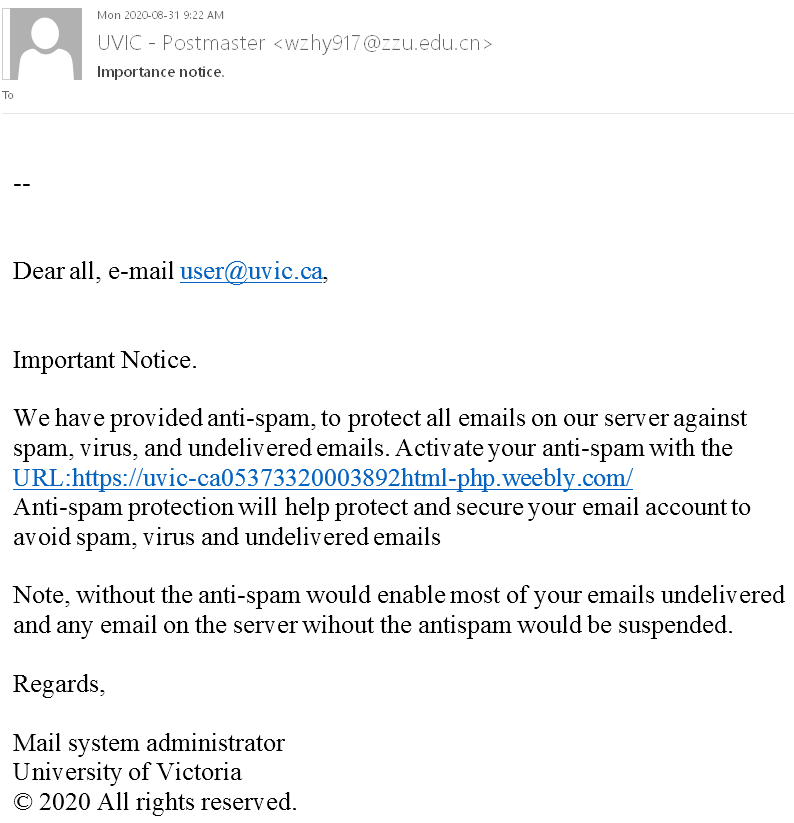
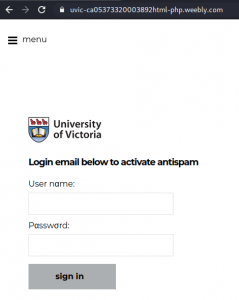
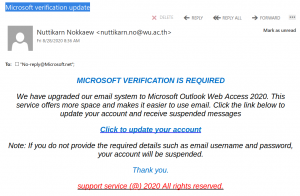 Please do not be curious and do not click on the link. The goal is to steal your UVic credentials (fake Outlook Web App page is shown below). Besides stealing credentials, these pages may contain malware which is why even opening the page is not a good idea.
Please do not be curious and do not click on the link. The goal is to steal your UVic credentials (fake Outlook Web App page is shown below). Besides stealing credentials, these pages may contain malware which is why even opening the page is not a good idea.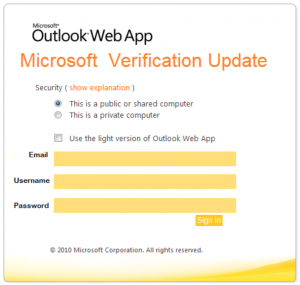
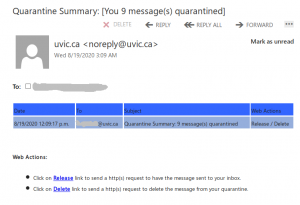
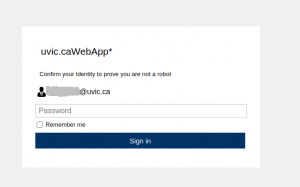
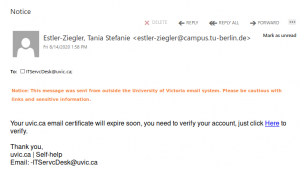
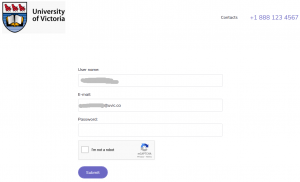
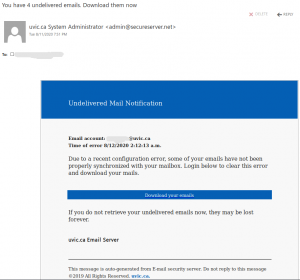
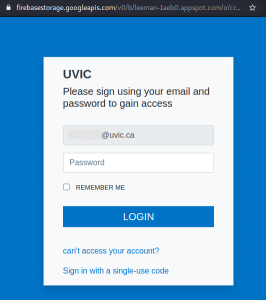
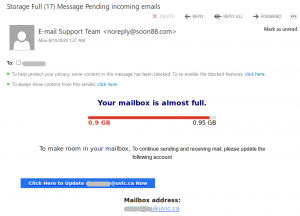
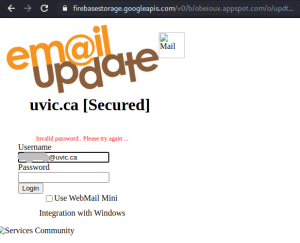

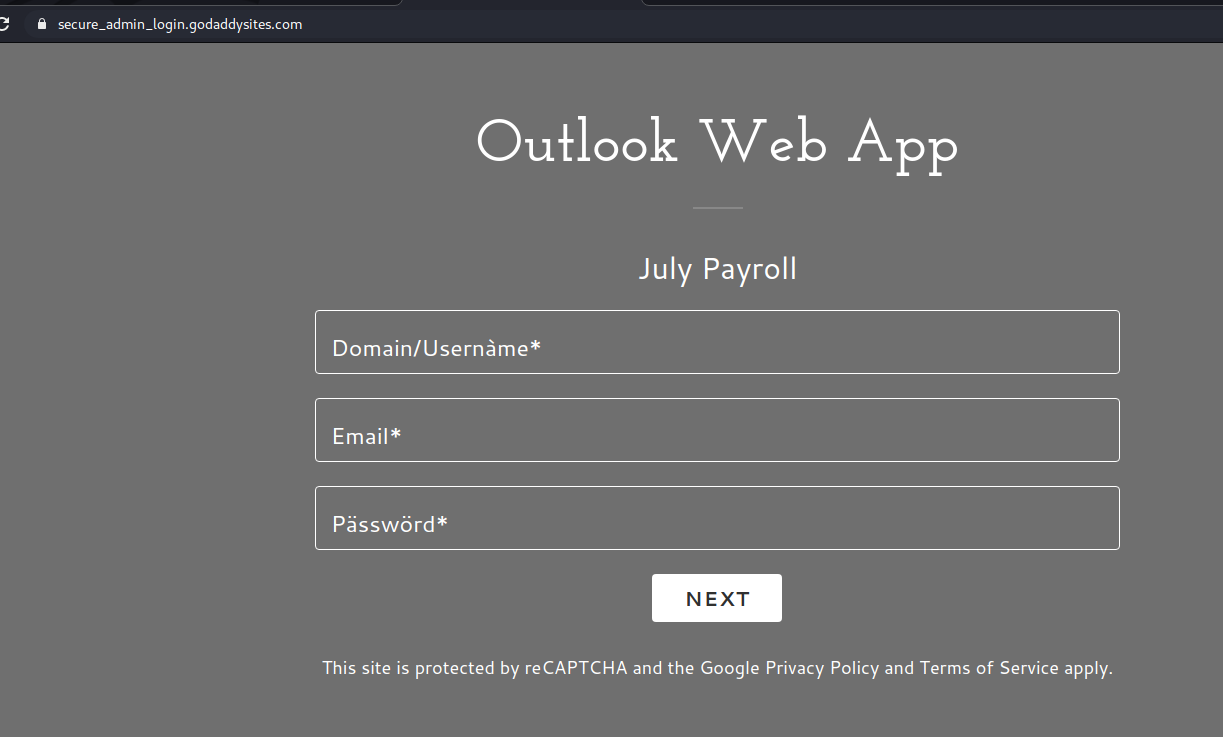
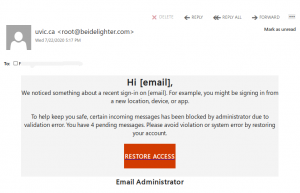
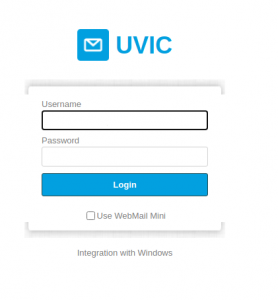
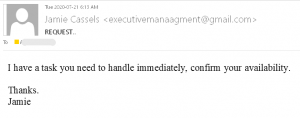 This is a typical start of a gift card scam. We wrote about those back in November:
This is a typical start of a gift card scam. We wrote about those back in November: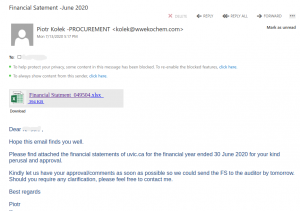 The actual attachment is a html file which redirects the victim to a UVic like OWA page:
The actual attachment is a html file which redirects the victim to a UVic like OWA page: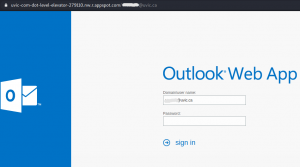 with the intention to steal your credentials. That page is clearly external – look at the address bar in the screenshot.
with the intention to steal your credentials. That page is clearly external – look at the address bar in the screenshot.